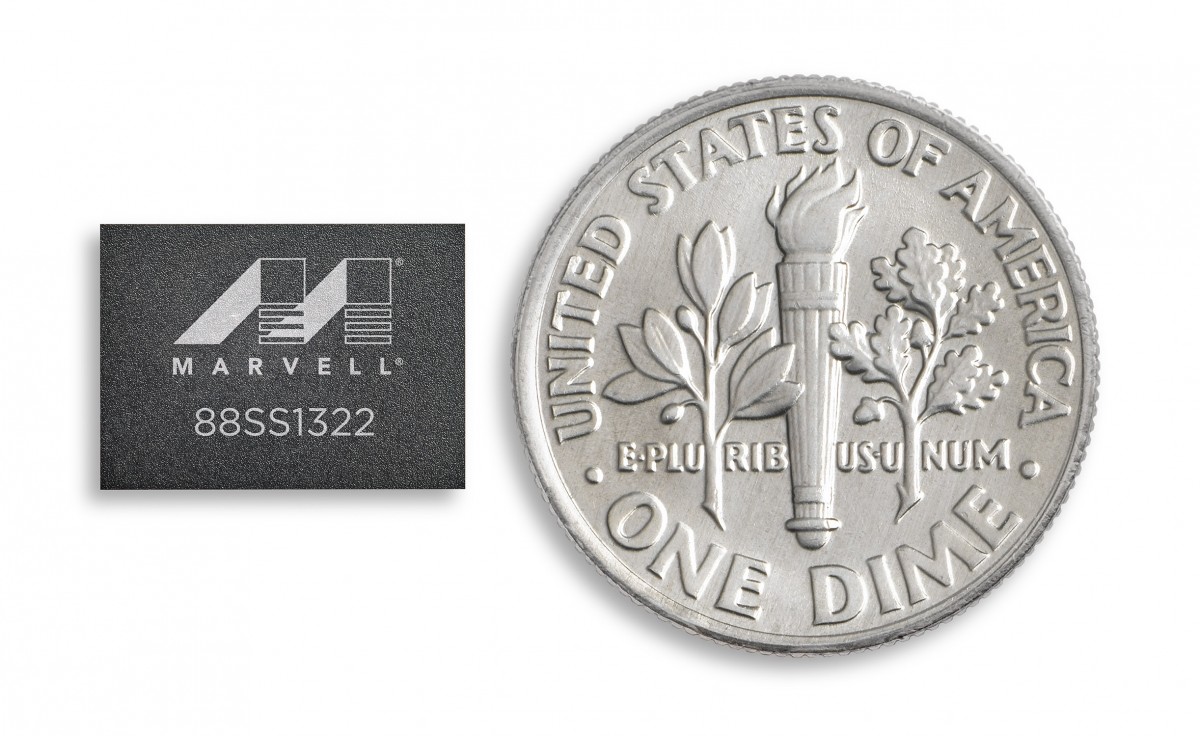Marvell’s newest SSD controllers are designed to meet the need for lower power and higher performance in next-generation data centers and edge devices as artificial intelligence (AI) and 5G gain momentum. This breakthrough technology delivers unparalleled performance in an ultra-compact footprint, leveraging the company’s complex system-on-chip (SoC) design expertise and groundbreaking storage IP to help data center, notebook, tablet, gaming and edge computing platform architects advance their solutions for the highly distributed data era.
“Marvell’s latest family of storage controllers has been architected to optimally address edge computing and data center pain points of power-performance and capacity-performance,” said Nigel Alvares, vice president of marketing for the Flash Business Unit at Marvell Semiconductor, Inc. “With today’s launch, we’re once again demonstrating Marvell’s leadership in storage, delivering the industry’s first 4-Channel PCIe Gen4 NVMe SSD controllers with the industry’s lowest power consumption that will help revolutionize SSD solutions for the data economy.”
Ecosystem Support
“AMD recently introduced the world’s first PCIe® 4.0 ready desktop PC platform, the 3rd Generation AMD Ryzen™ processor and AMD X570 chipset for socket AM4,” said Chris Kilburn, corporate vice president and general manager, Client Channel, AMD. “We are delighted with the Marvell DRAM-less PCIe Gen4 SSD controller helping bring the increased bandwidth and performance required to elevate the user experience with next generation computing devices.”
“As a strategic storage partner of Lenovo, we are dedicated to transforming our customers’ experience with technology innovation,” said JP Yang, general manager of SSD BU, Union Memory (a Lenovo company). “The PCIe Gen4 host interface, high-speed 1200MT/s NAND flash interface and low power 12nm technology of the Marvell SSD controllers support our vision of bringing significant value with superior power-performance in small form factors, low latency for fast wake-up and prolonged battery life operation.”
“We have worked closely with Marvell to validate Micron’s high-performance, 96-layer NAND components supporting 1.2 GT/s interface with its PCIe Gen4 SSD controller family,” said Arie Tal, senior director of business development for the Consumer and Components Group at Micron Technology. “Marvell’s optimized controllers will allow our mutual customers to deliver innovative, low-power, small form factor SSD solutions for emerging data center, edge computing and PC OEM use cases.”
“Marvell and Toshiba Memory Corporation have a strong established relationship delivering best-in-class SSD offerings for markets that span client to cloud data center,” said Hiroo Ohta, technology executive, Toshiba Memory Corporation. “We believe Marvell’s PCIe Gen4 controller product family combined with our TLC, QLC and XL-FLASH BiCS FLASH™ Gen. 4 devices will enable new edge and data center storage architecture solutions utilizing flash technology.”
Advancing Next-Generation Technology
The Marvell SSD controller portfolio of devices, including the 88SS1321, 88SS1322 and 88SS1323, represent the industry’s first PCIe Gen4 DRAM and DRAM-less SSD controllers to be fabricated on a 12nm process. With support covering all existing and emerging m.2 (22110 to 2230), BGA, EDSFF and U.2 SSD form factors, the controller family is ideal for cloud data center server compute storage, enterprise boot drives, PC client storage and gaming storage as well as emerging industrial and edge device applications.
Importantly, the new Marvell solutions will enable next-generation 3D and QLC NAND devices that maximize cost efficiency and reduce total cost of ownership. The ultra-compact DRAM-less controller architecture allows for a stand-alone SSD controller and NAND unit to be mounted side-by-side on a single-sided ultra-compact m.2230 form factor SSD. This significant space savings enables platform OEMs more room to house battery packs versus m.2280 SSDs, while also providing better performance compared to PCIe Gen 3x4 SSDs and lower power consumption compared to eight NAND channel controller-based SSDs.




